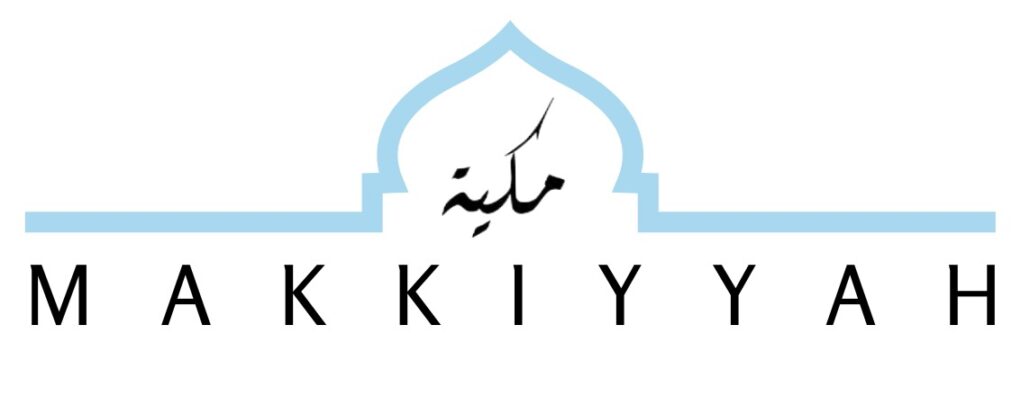Seeking Knowledge: How Do I Do It?
For most individuals in the West who are trying to balance school, work, and family, its often hard to know just where to start seeking knowledge. Below we have provided some guidelines that we hope you will find beneficial in deciding how to seek Islamic knowledge.
STEP 1: Make the Intention
Whether one ever does become a scholar or not is a separate question, but the aspiration and desire should be alive in our hearts to seek sacred knowledge. Allah’s Apostle said,
“The reward of deeds depends upon the intention and every person will get the reward according to what he has intended. So whoever emigrated for Allah and His Apostle, then his emigration was for Allah and His Apostle. And whoever emigrated for worldly [benefits] or for a woman to marry, his emigration was for what he emigrated for.” [Bukhari Vol 1; 2:51]
STEP 2: Decide which Track to Take
_______________________________________________________________________________________________________
Track I: Full-Time Scholar Track
This requires that one devote themselves and their life to the study of Islam. To have specialists in Islamic knowledge is necessary for the viability of an Islamic society and is considered Fard Kifayah. Therefore, it is Fard that some members of every community commit themselves to become scholars of Islam.
Time Commitment
A Shariah degree can take anywhere from 5 to 8 years to complete. One can also decide to go on to specialize in Hadith, Fiqh, or Tafseer amongst other subjects. Postgraduate studies can take anywhere from 1-10+ years.
When to Start
One does not have to wait till finishing high school to become a scholar. It all depends on the student. So if one starts at the age of 13, they could well finish by the age of 18 to 21.
Career Options?
Perhaps the most common worry for students of knowledge and their parents is with regards to providing for themselves and their families in the future. As Muslims, it is our firm belief that everyone’s sustenance is already destined. Allah SWT alone is the true Provider. If he can feed a simple animal, why cannot He feed the scholar?
Furthermore, the reality is that graduates of the Shariah program have many career options. With the large need for Muslim scholars here in the U.S., they can go on to serve as full-time/part-time Imams, Islamic studies teachers, preachers, Dawah workers, or industry consultants. Alternatively, they can convert their degree to a B.A. and go on to pursue post graduate studies after which they can serve as university professors, chairs of Islamic Studies departments, or researchers. Other options include becoming full-time Quran teachers, public speakers, or founders of their own Islamic learning institutions.
Of course, students can go on to pursue degrees in other fields after they finish their Shariah studies. In the past, students have gone on to pursue careers in medicine and information technology to name a few.
Where to Go?
Those who choose this track must also determine whether they will study here in the United States or go overseas to study. This often depends on the student’s own personal situation and is best dealt with on a case by case basis in consultation with a righteous scholar. However, one principle to bear in mind is that it is of paramount importance that one study in a spiritual environment from righteous, practicing scholars so that the light of knowledge, rather than just information, is acquired. Look for institutions where the blessed Sunnah of Rasulullah (S) is alive and well.
In the United States, Shariah study programs are now available in various larger cities. Alhamdulillah boarding schools where one can reside at the institute while attaining a Shariah degree have also been established in certain cities. There is great reward for those who make the sacrifice to take this option. It is a need of the time.
Track II: Part-Time Scholar Track
For those who are not yet ready to devote themselves fully to Shariah studies or who simply can not due to their personal situation, the Part-Time Scholar Track is an option.
Arabic is a Must
To become a scholar, the first step is to learn Arabic with proficiency. This does not have to be done in a Madrasah. Once a student has a firm grasp of the Arabic language and Arabic grammar, he or she can circumvent some of the early year(s) of study in a traditional Shariah program. Islamic knowledge is often divided into Uloome Aliya (Facilitatory Sciences) and Uloome ‘Aliya (Higher Sciences). One gains knowledge of the former so as to engage in the latter. If one has a firm grasp of the Arabic knowledge, they can begin to study the Higher sciences.
Time Commitment
Track II allows individuals to carry on with their lives and at the same time continue to learn Islam by teleconference, online, or on-site classes 1-5 times a week, depending on the course. Student continue to study till they reach a point where part time study is no longer feasible and then take 1-2 yrs off to complete their degree here in the U.S. or overseas. Track II is more prolonged (it can take well over 10 years) and requires dedication and commitment. At the same time, it keeps one engaged in good deeds and provides meaning to one’s life.
Make the Best Use of Your Time
For people on this track, it is important not to waste any time and to make use of weekends and summer breaks to devote themselves to more serious study of Islam, perhaps even enrolling at Islamic Institutes during summer breaks. This can serve as a real boost timewise.
Options
The best option is to find a local scholar with which one can study on a regular, part time basis. One can arrange weekend or evening classes for example. For those who do not have access to local scholarship, one can look into virtual options. If you are having trouble, please feel free to contact us and we will try to point you in the right direction.
Track III: Part-Time Islamic Studies
In this track, one also continues with their daily lives and schedules but, at the same time, integrates Islamic learning into their lives. There is a certain amount of knowledge that every Muslim man and woman must be familiar with. For example, though all Muslims do not necessarily need to know inheritance law, all Muslims should be familiar with what breaks one’s prayer or what commonplace financial transactions are Haram. It is mandatory to acquire knowledge of that which is mandatory in the Deen.
Possible venues to pursue this track include:
1. Weekly Halaqahs
2. Arrange classes with local scholars
3. www. ilmessentials.org – the Essentials Program
4. Read reliable, authentic books on Islam.
_______________________________________________________________________________________________________
STEP 3: Make a Commitment to a Track
In order to achieve our goals, we must put forth effort, dedication, and sacrifice.
STEP 4: Dua
Ultimately, our success is dependant upon the mercy of Allah SWT and His guidance, tawfeeq, and help. It is not our capabilities and talents, but rather our acceptance by Allah SWT that heralds success.


